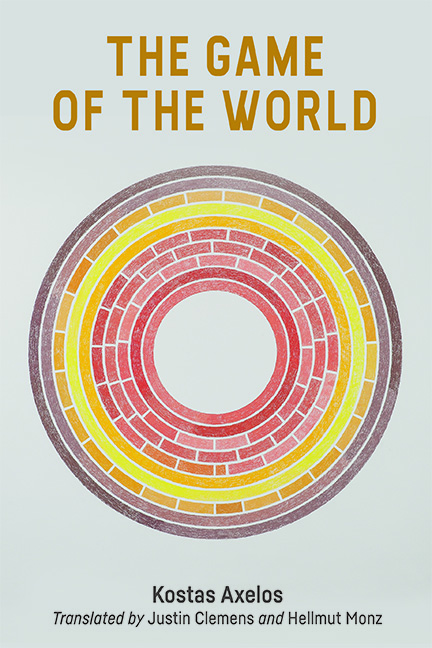Book contents
- Frontmatter
- Contents
- Translators’ Introduction
- Prelude
- Opening. The Great Powers and the Elementary Forces of the World
- I Logos. The Language and Thought of Man and the World
- II That. The Play of the Being in Becoming of the Fragmentary and Fragmented Totality of the Multidimensional and Open World
- III God-Problem
- IV Physis. The Cosmic World
- V The Human in the World
- VI World History
- VII The World of Poetry and Art
- VIII Being-Nothingness, Everything-Nothing, the Unworldly World
- IX The Game of the World
- Notes
- Analytical Table
Translators’ Introduction
Published online by Cambridge University Press: 17 November 2023
- Frontmatter
- Contents
- Translators’ Introduction
- Prelude
- Opening. The Great Powers and the Elementary Forces of the World
- I Logos. The Language and Thought of Man and the World
- II That. The Play of the Being in Becoming of the Fragmentary and Fragmented Totality of the Multidimensional and Open World
- III God-Problem
- IV Physis. The Cosmic World
- V The Human in the World
- VI World History
- VII The World of Poetry and Art
- VIII Being-Nothingness, Everything-Nothing, the Unworldly World
- IX The Game of the World
- Notes
- Analytical Table
Summary
With the present publication, Kostas Axelos’s masterpiece The Game of the World is finally – belatedly – available in English translation, over fifty years since its first appearance in France in 1969.
This belatedness is at once understandable and puzzling.
It is understandable, at least in the usual ways in which the market understands what is understandable. The book is gargantuan, a grand tome of scholarship, intelligence and vision; it is extraordinarily ambitious in its conceptual and linguistic scope; it presents many difficulties for interpretation and translation, even for cognoscenti of late twentieth-century French language philosophy. Its commercial potential is not necessarily perspicuous.
Yet this delay is also puzzling. After all, hasn’t anglophone literary theory and philosophy – which has put figures such as Henri Lefebvre, Jacques Derrida and Gilles Deleuze onto university reading lists around the globe, and even at times permitted such terms as ‘deconstruction’ into mainstream political and journalistic discourse – been entirely transformed by post-World War II ‘French Thought’, its contexts, its conditions, its terms of reference and ambitions? Moreover, do not the very same luminaries expressly name Axelos as a critical figure in this context? For Lefebvre, Axelos is ‘the first or one of the first of a species that supersedes the derisory human’ and ‘extends philosophy through Heidegger, but does so by turning his back on him’. Derrida, too, credits Axelos’s theses regarding the play of the world. For his part, Deleuze not just acknowledges Axelos but recognises in him the ‘salvation of philosophy’, proclaiming that ‘Axelos is to Heidegger what a kind of Zen is to the Buddha’. Examples could be multiplied.
As these encomia also attest, a crucial part of Axelos’s achievement has been his development of a unique and radical thinking of the notion/s of the ‘game’ and of ‘play’. Play is not only central to Axelos’s work, but one of his major contributions has been to show how pivotal it is to the history of philosophy, extending from Presocratic to contemporary thought. Indeed, Axelos maintained this standpoint throughout his life.
- Type
- Chapter
- Information
- The Game of the World , pp. 1 - 26Publisher: Edinburgh University PressPrint publication year: 2023



